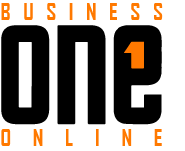You may be wondering what a COO does. Answers are crucial while serving as a company’s second in leadership.
- The second-highest executive in a firm is often the COO, or chief operating officer.
- A COO is in charge of carrying out both the short- and long-term objectives of the organization.
- COOs must be knowledgeable about and have expertise with a wide range of business tasks since they are responsible for managing several departments.
- The COO position often serves as an executive’s last position before being promoted to chief executive.
Nearly everyone in business has pondered the subject “What is a chief operating officer (COO)?” at some point. According to Fahad Shoukat, COO of corporate software company Skiplist, the fact is that it’s a difficult topic to answer.
“People don’t really understand what a COO does and how it fits in,” said Shoukat, who joined Skiplist as COO after specializing in sales management for the most of his career. “The COO function is often underappreciated and extremely poorly understood.”
Second in charge is the COO. He or she is a senior executive who oversees an organization’s daily operations and is sometimes referred to as the vice president of operations.
Shoukat refers to the COO as the “Swiss Army knife” of business since “operations” refers to practically anything a company does. However, the following is a clearer approach to think about the position: A COO is a company’s hands, while a chief executive officer (CEO) often acts as the company’s brain. The COO puts the CEO’s vision for the company’s long-term objectives into action by translating those objectives into day-to-day tactical choices and responsibilities.
An effective brand is driven by its chief operating officer, according to Laurie Windler, vice president of operations at Camp Bow Wow. “[COOs] are always looking for methods to systematize and streamline the brand.”
What is a COO’s role?
Since every business and sector is unique, every COO has a particular set of duties.
According to George Whittier, president of electronics maker Morey Corp., the COO often serves as the CEO’s right-hand man. According to Whittier, “[COOs] direct and monitor the company’s daily operations to achieve continual process improvement.”
According to Swim Against the Current’s Amy Sanchez, who is a qualified career coach, COOs and CEOs collaborate closely to make crucial business choices. Additionally, they collaborate with other C-suite executives, such as the CFO and CIO, to make sure that all departments are supporting the goals set by the company’s leaders and board of directors.
According to Randy Hayashi, COO of the credit card processing business Payment Depot, looking at the duties of the COO position in relation to the CEO may be the best method to define them.
He said, “My duty is to take the CEO’s grand vision and make it truly materialize. “That implies… I am in charge of developing the policies that will enable my sales manager, support manager, and tech manager to carry out the CEO’s goal. Finding answers and incorporating them into our routine practices are part of my job description to keep our business expanding.
Hayashi even goes so far as to often switch divisions for his desk in order to get a “ground-level perspective” of the business. The CEO of our firm is not engaged in any of the day-to-day activities, he said. “My stress level is reduced since I am better at the technical details and can let him handle the creative. Realizing that we each have strengths and shortcomings and are necessary components requires a lot of trust from both parties.
Everyone else, including additional C-level executives like the CFO and CTO, as well as mid-level managers like sales managers, marketing managers, and product managers, reports to the COO instead of the CEO.
What credentials should a COO possess?
COOs often combine a strong educational foundation with professional experience. People who aspire to be a COO, according to Windler, should have a business degree or a track record of establishing effective teams.
Windler said, “I think a COO ought to have done the path. “They must comprehend each function on their team and either have performed it personally or take the effort to do so. They can now see gaps and comprehend demands thanks to this.
Although having a Master of Business Administration degree might be a “big bonus from a sense of growing business and financial acumen,” Whittier said, it’s crucial to have a strong foundation in business. A particular degree isn’t required.
The best way to succeed as a COO, according to Whittier, is to have a solid grasp of business, human resource management, and the sector as a whole.
Shoukat believed that Shoukat’s breadth of business experience, but necessarily its depth, made him a good candidate for the position of COO.
“It made logical for me to become COO since I’ve had expertise with sales, marketing, business development, partnerships, customer service – a little bit of everything,” he added. “You have to be a master of certain things and a jack of all others.”
Instead of acquiring the necessary degree, aspiring COOs should concentrate on gaining the appropriate experience.
Despite having a background in economics, Hayashi noted that her preparation for her current position as COO came from her past managerial positions in other businesses. “I believe that those who wish to be in this job should be the hardest workers in their business, and they should also seize every opportunity that is offered to learn and lead.”
Which abilities should a COO possess?
You should also develop the necessary talents if you want to be a COO.
According to Windler, COOs should be excellent communicators and leaders like all other members of the C-suite. Operations may seem quite clear-cut, but to be successful, you must be able to see through the gray areas, she added.
“They must be adaptable and able to be changed by the CEO… They must be capable leaders with sound judgment, according to Sanchez.
Although these abilities may be learned at leadership seminars and other executive-level trainings, Hayashi asserts that they are best developed “in the trenches.”
According to Hayashi, “a successful COO has to be able to interact with people and have the organizational and analytical abilities to be able to handle issues and build processes.” “I personally answer sales, tech support, and customer service calls, and I actively engage in my colleagues’ working life. I’m interested in learning about their problems and how to address them.
According to Hayashi, his strategy produces trust, which leads to successful commercial results. If you have a C-level position, people must subject to you; yet, if you want a thriving team that supports your leadership and the company’s mission, you must demonstrate your concern for and understanding of their needs.
According to Windler, COOs should have a strong foundation in soft skills and have a working knowledge of project management and team building.
Whittier stated, “You need to be a strategic thinker with strong commercial and financial understanding. Negotiation skills are also beneficial.
What is the compensation of a COO?
Despite having a wide range of duties and requirements, COOs often get significant compensation for their toil.
Industry, business age, experience, tenure, and salary history are just a few of the many variables that affect a COO’s pay. According to the compensation website PayScale, the typical COO base income is $141,757 per year, with an extra $24,930 in incentives. PayScale reports that the usual range of COO salaries is between $71,000 and $246,000 per year, with $246,000 being the highest. For the sake of comparison, the average pay for a CEO is $158,193 and for a CFO is $131,816, respectively.
How do you advance to COO?
The road to becoming a COO is varied. Some individuals quickly advance to the COO position after joining a small startup or co-founding their own business. Others gradually climb the corporate ladder inside one or more big firms over the course of years or even decades before becoming a COO.
However, there is at least one wise suggestion that might help you advance to the position of COO: Always broaden your network as you establish your profession. The majority of accomplished business people reached their positions via a combination of hard work and contacts.
Many individuals, according to Sanchez, “spend so much time within their firm that they neglect to concentrate on growing their network.” The ideal approach, according to the author, is to succeed at your current job while expanding your network with executives who are moving forward in other organizations, executive coaches, and recruiters.







